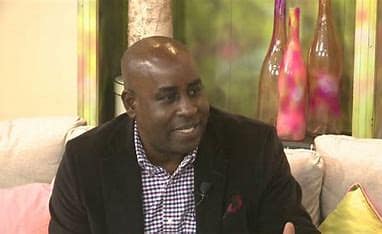At its core, compassion is the deep awareness of the suffering of another, coupled with the desire to alleviate it. It is more than pity. It is more than sympathy. Compassion is love in action. It is the stirring of the heart that refuses to look away when others are in pain. It is the quiet voice that says, “I may not have much, but I can still help.”
In a world where hunger, homelessness, and hardship are all too common, compassion is not a luxury—it is a necessity.
Across the globe, and even in the wealthiest nations, people are struggling. In the United States—often seen as a land of opportunity—thousands are forced to sleep in cars, under bridges, or on sidewalks. In cities like California, New York, and Florida, the cost of living has outpaced wages, leaving many without shelter. Some are working two jobs and still cannot afford rent. Others are elderly, disabled, or mentally ill, left behind by systems that were supposed to protect them.
And while many are quick to judge—labeling the homeless as lazy or irresponsible—the truth is often far more complex. Job loss, illness, domestic violence, or a single unexpected expense can push someone over the edge. What they need is not condemnation, but compassion.
Here in Antigua and Barbuda, we are not immune. On our streets, we see men and women—some mentally ill, others simply down on their luck—begging for a piece of bread. We see them at traffic lights, outside supermarkets, or sitting quietly on sidewalks. And too often, we roll up our windows, avert our eyes, and drive away.
But what if we were moved by compassion?
What if, instead of judgment, we offered kindness? Instead of turning away, we offer some support.
We do not need to be rich to care. We do not need to have plenty to share a little. A sandwich, a bottle of water, a kind word, or even a moment of eye contact can restore dignity to someone who feels invisible.
We are reminded of Him who had no house, who said, “Foxes have holes and birds have nests, but the Son of Man has no place to lay his head.” Yet, when He saw the multitude of 5,000 gathered on a hillside near the Sea of Galilee—hungry, tired, and in need—He was moved with compassion. He fed them. He healed them. He loved them.
If He, with no earthly riches, could be moved by compassion, how much more should we, who have homes, jobs, and the ability to help?
Some of the most effective leaders—whether in business, the church, or government—are those who are moved by compassion. They see beyond statistics and policies. They see people. They understand that leadership is not about power, but about service.
Imagine a society where our decisions are guided not just by profit or popularity, but by compassion. Imagine policies that prioritize the poor, the vulnerable, and the forgotten. Imagine churches that open their doors not just on Sundays, but every day, to feed the hungry and shelter the homeless. Imagine communities where neighbors look out for one another, where no one is left behind.
Let us not harden our hearts. Let us not become so busy, so distracted, or so self-absorbed that we forget the humanity of those in need.
Let us act with compassion.
You don’t have to be wealthy to make a difference. You don’t need a title or a platform. All you need is a heart that is willing to care.
Give what you can—whether it’s food, time, money, or simply kindness. Support local charities. Volunteer. Speak up for those who have no voice. And when you see someone in need, don’t just pass them by.
In these challenging times, compassion is one of our greatest strengths. It is what binds us together as a people. It is what lifts us up when we fall. And it is what will carry us forward as a nation.
So today, let us choose compassion. Let us be moved—not just by feeling, but by action.
Because when we are moved by compassion, we move the world.
And remember this: “He who gives to the poor lends to the Lord, and the Lord will repay.” For God is a good paymaster.
Therefore, let us be kind to one another.


